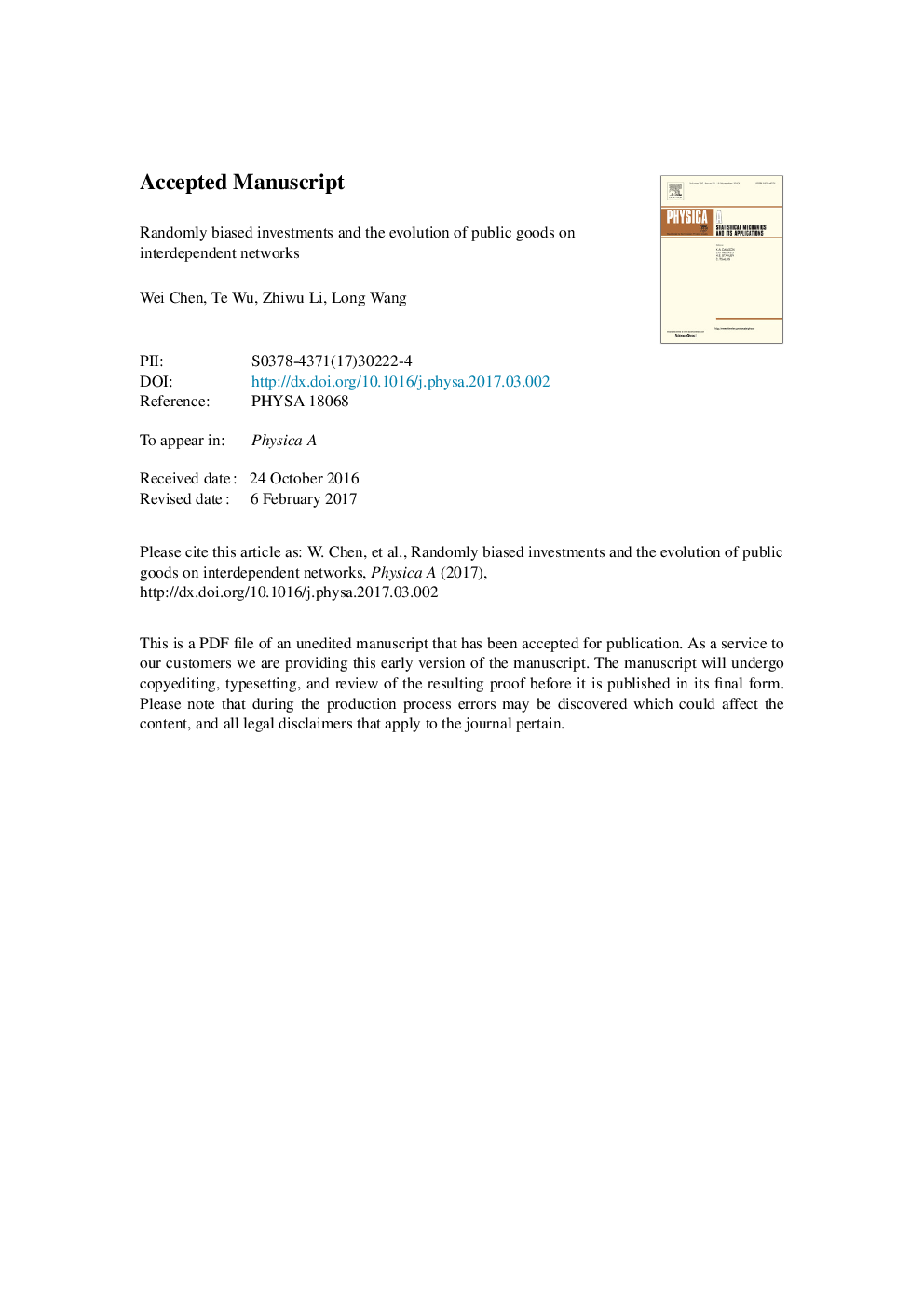| Article ID | Journal | Published Year | Pages | File Type |
|---|---|---|---|---|
| 5102995 | Physica A: Statistical Mechanics and its Applications | 2017 | 20 Pages |
Abstract
Deciding how to allocate resources between interdependent systems is significant to optimize efficiency. We study the effects of heterogeneous contribution, induced by such interdependency, on the evolution of cooperation, through implementing the public goods games on two-layer networks. The corresponding players on different layers try to share a fixed amount of resources as the initial investment properly. The symmetry breaking of investments between players located on different layers is able to either prevent investments from, or extract them out of the deadlock. Results show that a moderate investment heterogeneity is best favorable for the evolution of cooperation, and random allocation of investment bias suppresses the cooperators at a wide range of the investment bias and the enhancement effect. Further studies on time evolution with different initial strategy configurations show that the non-interdependent cooperators along the interface of interdependent cooperators also are an indispensable factor in facilitating cooperative behavior. Our main results are qualitatively unchanged even diversifying investment bias that is subject to uniform distribution. Our study may shed light on the understanding of the origin of cooperative behavior on interdependent networks.
Related Topics
Physical Sciences and Engineering
Mathematics
Mathematical Physics
Authors
Wei Chen, Te Wu, Zhiwu Li, Long Wang,
